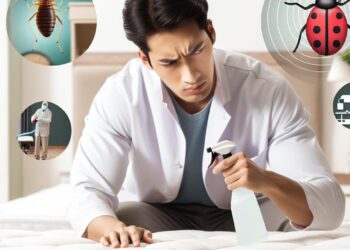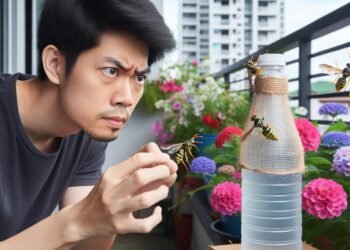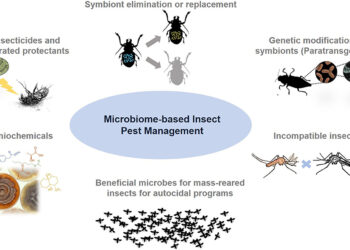“Protecting Your Harvest: Effective Strategies to Safeguard Your Crops and Gardens from Pest Infestations”
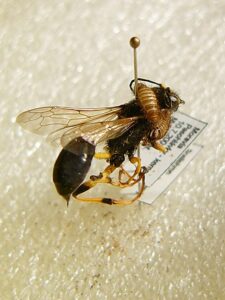
- Identify the pests: The first step to prevent pest damage is to identify the pests in your garden or farm. Different pests require different control methods. Some common pests include aphids, slugs, snails, caterpillars, beetles, and rodents. You can identify the pests by inspecting your plants for physical damage, such as chewed leaves, holes in fruits, and droppings. You can also use traps to capture and identify the pests.
- Choose the right plants: Selecting the right plants is crucial in preventing pest infestations. Certain plants repel pests, while others attract them. For example, marigold plants are effective in repelling aphids, nematodes, and whiteflies. Planting herbs such as basil, lavender, and mint also repels pests. On the other hand, some plants, such as strawberries and tomatoes, attract pests such as slugs and snails. Therefore, it’s essential to research the plants that are suitable for your location and the pests in your area.
 Source: Google Images
Source: Google Images - Practice crop rotation: Crop rotation is an effective technique to prevent pests from infesting your crops. Planting the same crop in the same location every year allows pests to build up their population, making it easier for them to cause damage. Rotating crops every year disrupts the pests’ life cycle and reduces the likelihood of infestation. It also helps to maintain soil health and fertility.
- Use physical barriers: Physical barriers such as netting, mesh, and row covers are effective in preventing pests from accessing your crops. These barriers are particularly useful in protecting against birds, rodents, and flying insects. Covering your crops with a mesh or netting will prevent birds from eating your fruits and vegetables. Row covers can be used to protect your plants from pests such as aphids and caterpillars.
- Companion planting: Companion planting involves planting different crops next to each other to enhance their growth and repel pests. For example, planting onions or chives next to carrots can help to deter carrot flies. Similarly, planting beans next to tomatoes can help to repel whiteflies. Companion planting not only helps to prevent pest infestations but also improves soil fertility and reduces the need for fertilizers.
- Maintain good hygiene: Maintaining good hygiene in your garden or farm is essential in preventing pest infestations. Pests thrive in dirty and cluttered environments. It’s crucial to remove dead leaves and other debris from your garden regularly. This will reduce the places where pests can hide and breed. It’s also important to clean and disinfect your gardening tools and equipment regularly to prevent the spread of pests and diseases.
 Source: Google Images
Source: Google Images - Use organic pesticides: If you need to use pesticides to control pests, it’s best to use organic pesticides rather than harmful chemical pesticides. Organic pesticides are made from natural ingredients such as neem oil, pyrethrum, and garlic. They are effective in controlling pests and do not harm beneficial insects such as bees and ladybugs. You can also make your organic pesticide by mixing ingredients such as vinegar, garlic, and soap. However, it’s important to follow the instructions carefully and use pesticides sparingly.
- Introduce beneficial insects: Introducing beneficial insects such as ladybugs, lacewings, and praying mantis can help to control pests in your garden or farm. These insects feed on pests such as aphids and caterpillars, reducing their population and preventing damage to your crops. You can purchase beneficial insects from garden center’s or online. It’s important to release them at the right time and in the right location to ensure they have the most significant impact. For example, releasing ladybugs in the evening when pests are most active can increase their effectiveness.
- Use traps: Traps are a useful tool in controlling pests such as slugs, snails, and rodents. There are various types of traps available, including sticky traps, bait traps, and pheromone traps. Sticky traps are effective in capturing flying insects such as whiteflies and fruit flies. Bait traps can be used to capture slugs and snails, while pheromone traps are used to capture male pests such as moths and beetles.

Source: Google Images - Be vigilant: Lastly, it’s crucial to be vigilant in monitoring your crops and gardens for signs of pest infestations. Regularly inspecting your plants for physical damage and checking traps for captured pests can help you identify and control pest populations before they cause significant damage. Early detection and prevention are key to reducing the impact of pests on your crops and gardens.
It’s worth noting that prevention is always better than cure when it comes to pest control. It’s much easier and more cost-effective to prevent pests from infesting your crops and gardens than to control an established infestation. Therefore, it’s essential to implement these prevention methods consistently throughout the growing season.
It’s also important to consider the environmental impact of pest control methods. Harmful chemical pesticides can harm beneficial insects, contaminate soil and water, and harm human health. Organic pesticides and other eco-friendly methods are safer for the environment and for human health.
Another consideration is the importance of biodiversity in your garden or farm. Encouraging a diverse range of plants and beneficial insects can help to prevent pest infestations naturally. Monoculture, or planting a single crop, can increase the risk of pest infestations and reduce biodiversity.
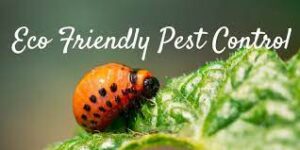
Conclusion
Preventing pests from damaging your crops and gardens requires a combination of techniques, including identifying the pests, selecting the right plants, practicing crop rotation, using physical barriers, companion planting, maintaining good hygiene, using organic pesticides, introducing beneficial insects, using traps, and being vigilant. By implementing these eco-friendly and practical methods, you can protect your crops and gardens from pests without harming the environment or human health.




